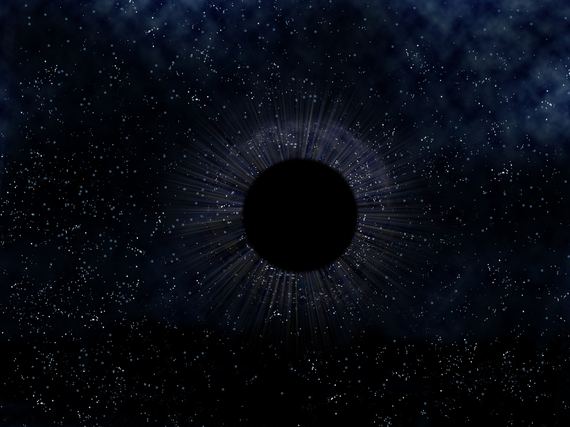Are we able to use dark matter to benefit humanity? And if so, how can that be achieved with the correct technology?
What do we know about dark matter?
Dark matter is a type of material that has gravity, found in the universe that does not emit or reflect light, for this reason it is invisible and all light passes though. Dark matter makes up around 25 percent of the universe. Since dark matter is invisible to the naked eye, astronomers use gravitational lensing to detect its impact. They can achieve this by looking at how the gravity of large galaxy clusters bends and distorts the light of faraway galaxies found behind the clusters. Dark matter is thought to be “halos” surrounding galaxies, they hold together galaxies and everything inside them to avoid the substances rapidly flying out into the void or the universe. Dark matter is identified as cold as well as having a neutral charge.
Assumptions of Scientists
Although we do not have a solid answer to what dark matter is made of, most scientists think that a majority of dark matter includes undiscovered subatomic particles called WIMPs (weakly interacting massive particles). These particles only interfere with the force of gravity and another force called the weak nuclear force. At one point, scientists thought WIMPs could be a neutral subatomic particle called neutrinos, but this was proved wrong as neutrinos move too quickly. Nonetheless, scientists took a different approach and theorized a hypothetical WIMP called neutralinos, which are antiparticles without electrical charge. These neutralinos apply to cold dark matter as cold dark matter’s particles move slower. Dark matter could also supply extra gravity to form more compact structures.
Jia Liu and his discoveries
In 2009 Jia Liu (a physicist) released a research paper explaining on how using dark matter as an energy source can power spacecrafts on extremely long missions. His assumption like many scientists was that part of dark matter was made of neutralinos, and in some right circumstances, they “wipe out” each other and convert all their mass into energy. If his assumption is true a pound of dark matter would have the potential to produce approximately 5 billion times as much energy as a pound of dynamite. This reveals that a dark matter engine would have enough force to power a rocket ship through the cosmos. Additionally, his engine would be different from a regular rocket, a spaceship would not need to carry as much fuel since the engine would be able to gather more dark matter along the parts of space with large amounts of dark matter. On top of that the quicker the rocket travels, more dark matter would be “scooped up” and accelerate.

Conclusion/My thoughts
While I was researching this topic I could not find much information on how dark matter could benefit humanity. This lead me to the conclusion that we still need to do more research on this specific topic and a specific answer would be hard to achieve in the near future. Although Jia Liu’s Theory may or may not be correct, this lead me to think that if astrophysicists/physicists/ other scientists are able to create new technologies focused on obtaining dark matter, and what it is made from, it could potentially lead to new discoveries about our solar system, the Milky Way, our galaxy, and even beyond that. We all know that the universe is filled with many mysteries and unknowns. Maybe these new technologies can help us discover a more in-depth understanding of the universe. Who knows? The discovery of new planets and substances could lead to new medicines, and technologies that could benefit us!
Sources:
Photo:
shutterstock_52494787-thumb-570×427-125951.jpg
Video:
https://www.youtube.com/watch?v=HneiEA1B8ks
Text:
Lerner, K. L. (2020). Dark matter. In Gale Science Online Collection. Gale. Retrieved March 31, 2023 https://link-gale-com.bc.idm.oclc.org/apps/doc/FHJXMV811075179/SCIC?u=43riss&sid=bookmark-SCIC&xid=6b866d24
Hooper, D. (2023). Dark matter. In World Book Advanced. Retrieved April 1, 2023
https://www-worldbookonline-com.bc.idm.oclc.org/advanced/article?id=ar148330
Liu, J. (2009, August 11). Dark matter as a possible new energy source for future Rocket Technology. arXiv.org. Retrieved April 1, 2023, from https://www.researchgate.net/publication/45866781_Dark_Matter_as_a_Possible_New_Energy_Source_for_Future_Rocket_Technology
Wow this is very detailed research! I liked your topic and your inquiry question is fascinating. Hopefully in the future this topic becomes more researched because it might be helpful for us if we’re able to use dark matter to benefit humanity.
I really enjoyed reading this, I thought it was very informational and well-written. I did not know this about dark matter and I learned a lot! 😊👍